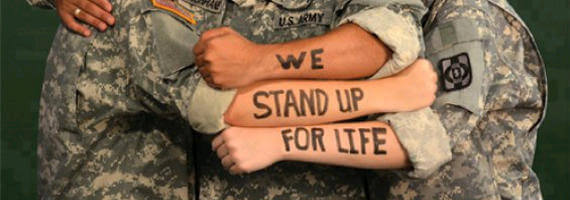At a recent military conference, an attendee rushed up to tell me that there was an “epidemic” of military teen suicides.
With tears in her eyes, she told me a story of a local military family who lost their son to suicide. She mentioned a school with two military teen suicides in a year. She worried aloud about her own daughter’s deepening depression.
As a parent, I’ve worried about my teens and depression, too. Anyone who knows or even hears about a teen suicide in a military family worries--even as their heart goes out to that family.
But are our teens really more at risk?
A recent study published in the Journal of Adolescent Health says that they are. While 15% of civilian students in the study reported making a suicide plan, 24.8% of military kids who had a parent deploy reported making a suicide plan. Eighteen percent of military kids in the study said that they had actually made an attempt. More than five percent said they had to receive medical treatment.
According to the researchers, these figures are significantly higher than those found in the civilian population.
I think it is important to note that simply having a parent or sibling who served in the military was not enough to cause a problem. Ron Astor, a doctor of human development/school psychology and one of the authors of the study, pointed out that the majority of military kids do tend to handle deployments and moves.
In fact, military kids in the study were no more likely to have a mental health issue than civilian kids. Yet according to Astor, a good 25 – 30% of military adolescents were having difficulties. That seems like a lot.
The difference in suicidal thoughts experienced by military kids was connected to deployment, especially if the servicemember had deployed several times in the last ten years.
Although the study did not cover PCS moves, Astor told me that for a small number of kids transitions may be an additional factor.
“It's likely a combination of the two,” Astor wrote. “Dealing with the stress (of deployment) and being the new kids on the block over and over.”
Astor noted that kids then need to build new social support which not all families have. Then those who do not have social support struggle even more.
This particular research is so important to our community. Most of the time, I confess that I kind of shrug off research about military kids. One of the problems with what we “know” about military kids is that it is really hard for researchers to get a representative sample—one in which all types of military kids are equally likely to be represented.
Most of what researchers can tell us comes from studies of kids who are already getting treatment or from those who are attending a special summer camp.
This study was different. The researchers from the University of Southern California School of Social Work (who have been concentrating on military kids and schools that have a large concentration of military kids) were able to hook their research questions into a large study of California schools. They now have five very large samples from 2011 and 2013.
This means that the study compares military kids to civilian kids who attend the same schools, are in the same grades, go to the same classes, live in the same communities. In this study, more than 13% of those sampled had a parent or sibling in the military.
We can’t afford to shrug off this kind of research. Astor recommends more counselors and social workers in schools with larger populations of military students. He recommends training teachers to know the signs of a troubled kid.
That sounds wise. Yet as a parent of a military adolescent--onewhose father has deployed and deployed, one who I plan to move and move again-- I find myself wondering: Will that be enough? Or is there something more we need to do?
Keep Up with the Ins and Outs of Military Life
For the latest military news and tips on military family benefits and more, subscribe to Military.com and have the information you need delivered directly to your inbox.









